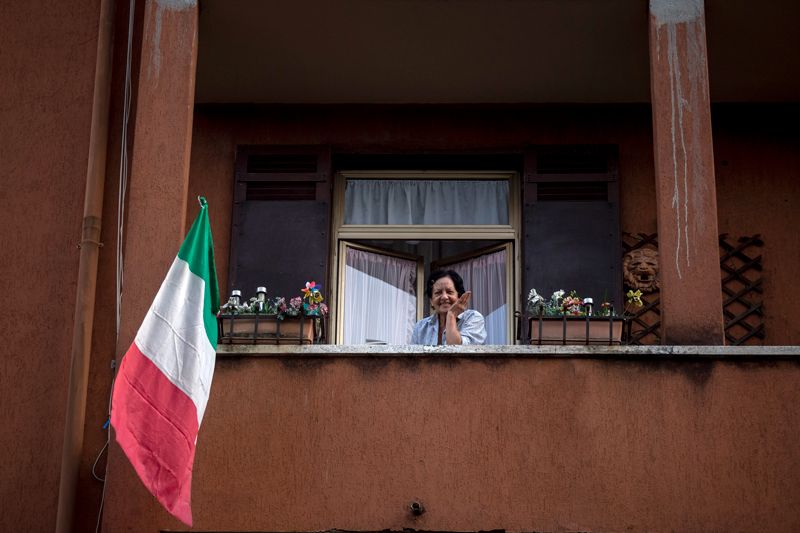Per la versione italiana clicca qui
A woman looks out of her balcony in locked-down Rome
2 April 2020 (Brussels, Belgium) – Images and videos of locked-down Italians singing on their balconies to applaud healthcare workers have circulated the world. But last week, thousands of citizens were out for another cause: science. For three evenings, on 23–25 March, 6,000 Italians appeared on their balconies to take part in a citizen-science experiment that has never attempted before — to measure light pollution with smartphones.
The project, called “Science on the Balcony” and launched by the Italian National Research Council, asked participants to turn off all the lights in their apartment and launch an app designed for the study. Then, they were asked to turn their phone screens towards the main light source that can be seen from their windows — for example, a streetlight or a sign. Using the phones’ brightness sensors, the app measures the light source’s illuminance, or brightness, in lux units.
Luca Perri, an astrophysicist and science communicator, and Alessandro Farini, a researcher at Italy’s National Institute of Optics, conceived the study. Like many nations, Italy has seen a steady increase in night-time light in recent decades. Such light pollution compromises astronomers’ view of space and presents environmental, economic, safety and public-health problems; it can, for instance, affect the immune system.
How the coronavirus pandemic is affecting the world’s biggest physics experiments
But widespread data collection on light pollution requires a significant investment of time and money, and might need researchers or sensors to be placed in homes. And satellites detect only light reflected skywards, meaning they don’t give a full picture. The latest project allowed researchers to measure light inside homes, harnessing the collaboration and enthusiasm of locked-down citizens. Initial data confirm that people in every Italian province participated.
And Farini sees another advantage for science in the project:
“This pandemic risks creating doubts about science, because a lot of fake news is circulating. With this experiment, we wanted to bring citizens closer to measurement techniques, to let them see the often complex process and allow them to participate in the scientific method.”
